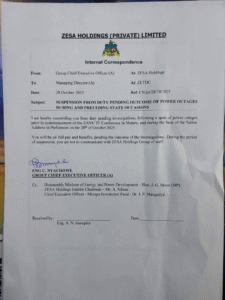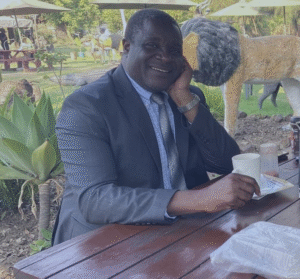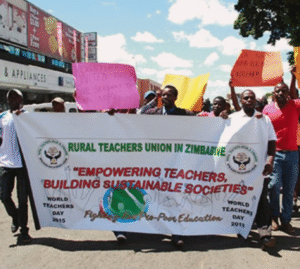CALLS FOR JUSTICE: ADDRESSING UNETHICAL BAIL PRACTICES IN ZIMBABWE’S COURTS

In a significant exposé by the Journal of Democracy Governance and Human Rights, human rights lawyers Justice Alfred Mavedzenge and Musa Kika have shed light on a concerning trend within Zimbabwe’s judicial system. Their report highlights a growing disparity in bail proceedings, revealing a bias that favors accused individuals affiliated with the ruling Zanu PF party over their opposition counterparts. This discrepancy raises alarming questions about the impartiality of the judiciary and the integrity of legal processes in the country.
The issue at hand is not merely about the granting of bail but the underlying unethical conduct of magistrates who appear to collude with external stakeholders, compromising the fairness and transparency of bail proceedings. The Judicial Service Commission (JSC) is called upon to implement effective measures to address this malpractice. Proposals include setting up anonymous reporting mechanisms for magistrates to disclose intimidation or duress and ensuring the digital documentation of court proceedings to prevent manipulation of records.
This skewed application of justice is illustrated through several case studies. For instance, in August of the previous year, 13 Zanu PF activists charged with inciting public violence during a rally in Harare’s Glen View 7 suburb were granted bail within nine days. In stark contrast, human rights activist Makomborero Haruzivishe, charged with a similar offense but without resulting in death, was granted bail after a prolonged 14 months in custody. Such disparities are not isolated incidents but part of a broader pattern of selective law enforcement.
Further examples include the “Zanu PF 11,” implicated in the murder of CCC supporter Mbongeni Ncube, who were granted bail in 46 days, compared to Job Sikhala, a former legislator, who spent 595 days in pre-trial detention for inciting violence. The report also contrasts the treatment of opposition figures like Joanna Mamombe and Pride Mkono, who faced significant delays in being granted bail, with Zanu PF-linked individuals embroiled in corruption cases, such as Henrietta Rushwaya and Priscilla Mupfumira, who received comparatively swift bail.
These cases underscore a troubling trend of judicial leniency towards those connected to the ruling party, despite serious charges, and a harsh stance against opposition members and activists, often detained for exercising their rights to free speech and assembly. The implications are far-reaching, affecting not only the individuals involved but also the broader perception of justice and democracy in Zimbabwe.
Civil society organizations are urged to lobby for legislative reforms, particularly the amendment of the Criminal Procedure and Evidence Act, to ensure a more equitable and transparent judicial process. Such reforms are critical to restoring faith in Zimbabwe’s justice system and ensuring that all citizens, regardless of political affiliation, are subject to the same legal standards.
This report serves as a crucial call to action for the Zimbabwean judiciary and governmental bodies to address and rectify the disparities in bail proceedings. The integrity of the legal system and the democratic principles it is supposed to uphold depend on the implementation of these much-needed reforms. Without such changes, the credibility of Zimbabwe’s commitment to justice and human rights remains in question.




